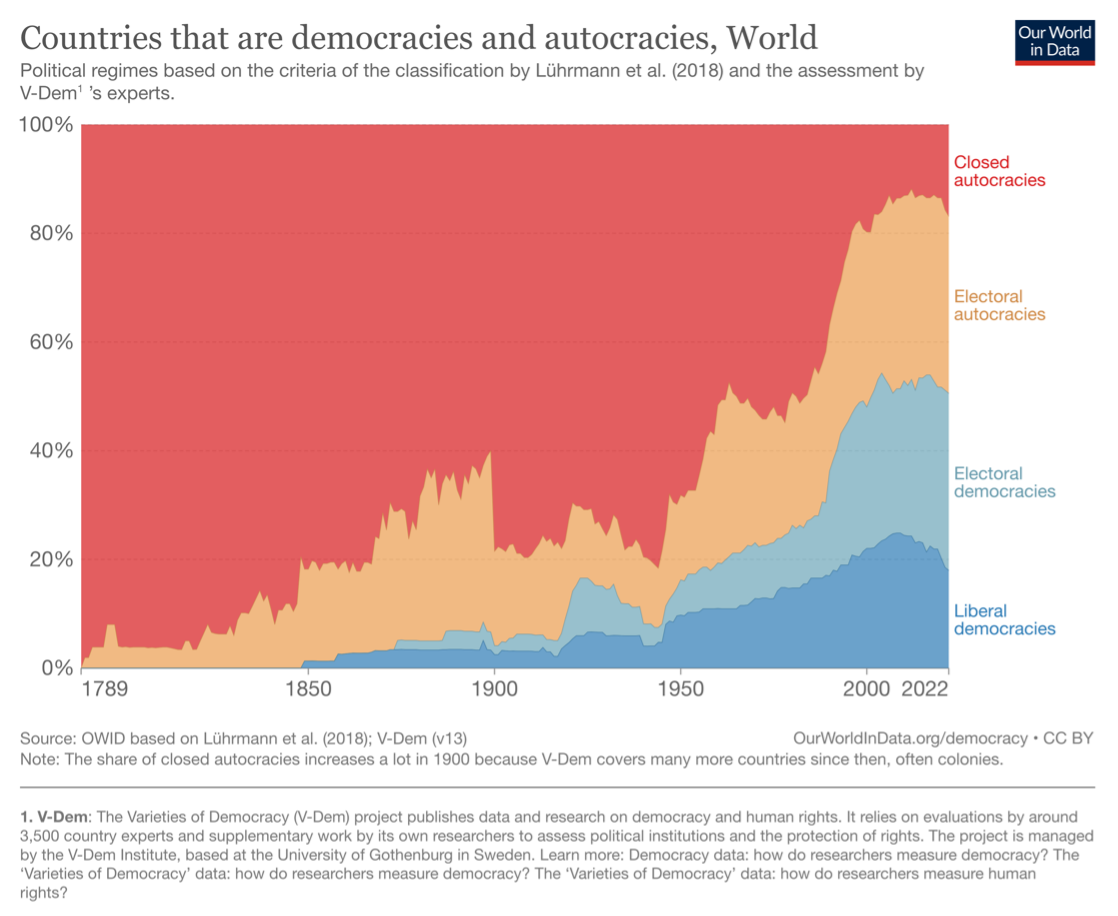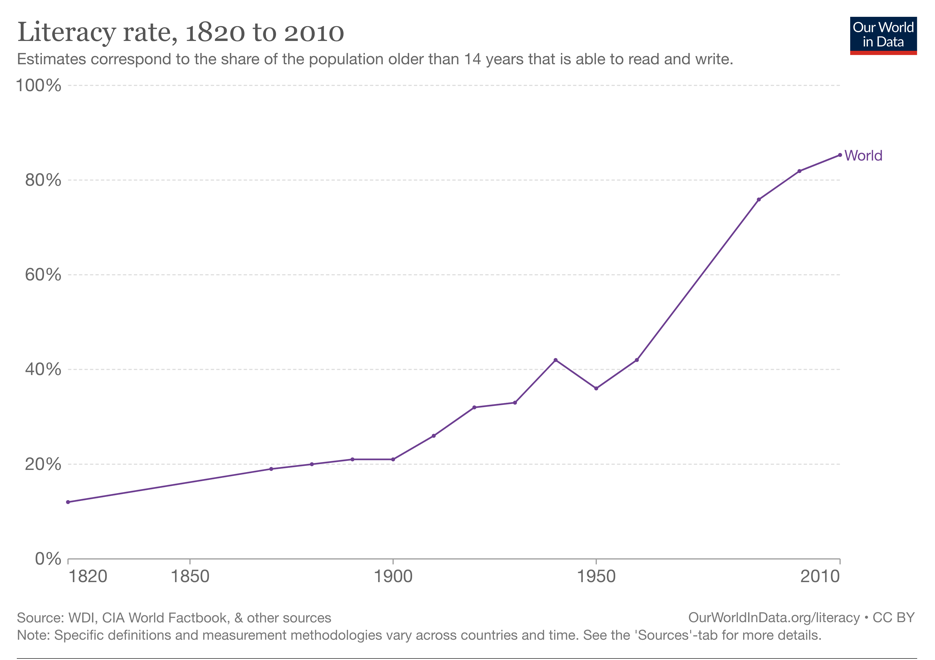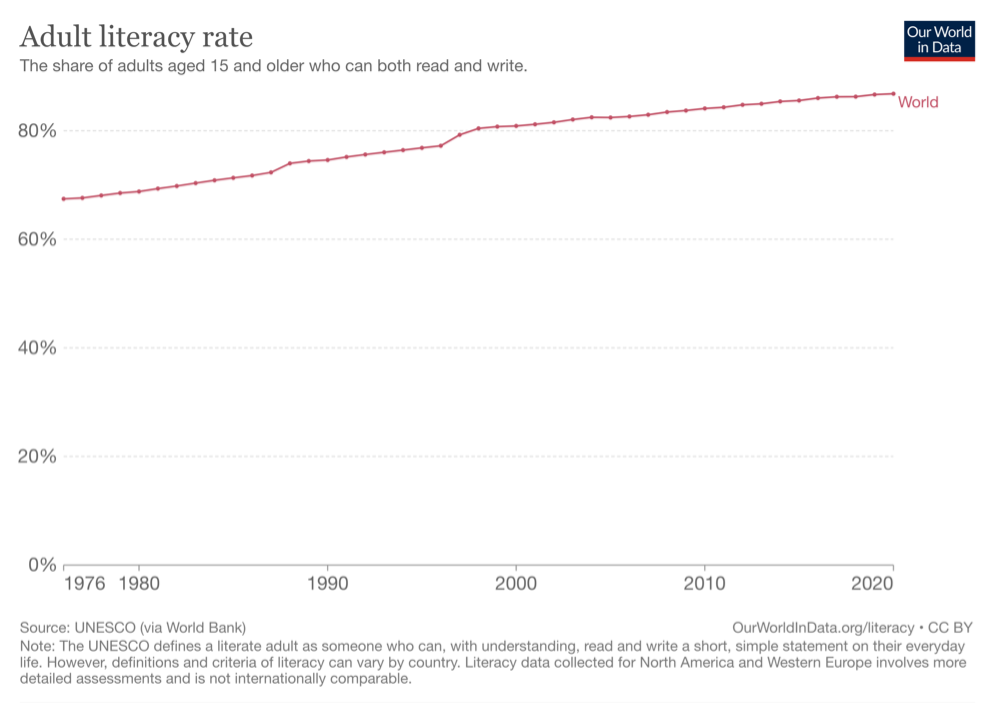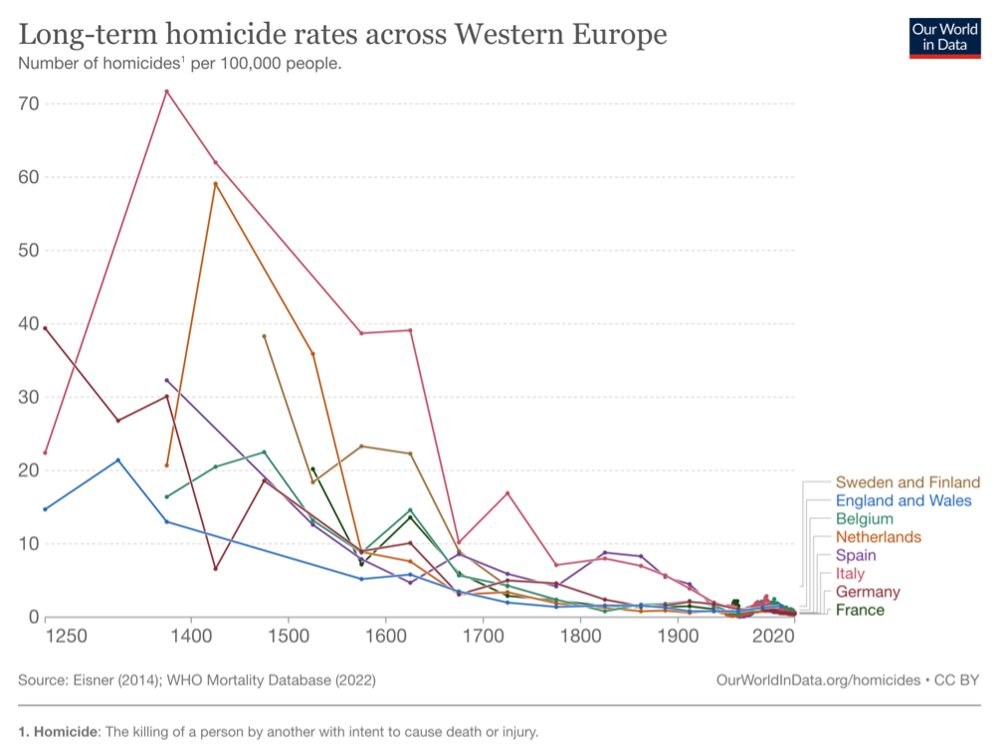by Peter Diamandis: Ready for some more data-driven optimism?
 Today, I’ll be sharing charts showing how the world is improving across several dimensions, including rising worldwide democracy and freedom, higher levels of literacy, and even falling homicide rates.
Today, I’ll be sharing charts showing how the world is improving across several dimensions, including rising worldwide democracy and freedom, higher levels of literacy, and even falling homicide rates.
Again, it’s essential to pause and ask: Why are these aspects of our world improving? Are humans getting more innovative? Are politicians becoming more effective?
The good news is that exponential technologies are being used by entrepreneurs to create new products and services that are dematerializing, demonetizing, and democratizing old ways of doing business and driving increased global abundance.
This trend of accelerating technological change provides endless opportunities for ambitious and energetic entrepreneurs.
It also leads us to pursue a compelling, hopeful, and abundant future for ourselves, our families, and our companies.
Let’s dive in…
We’re Freer Than Ever Before
“What does a person have if they don’t have their freedom?
Here too, we can find proof of abundance. As we look at this over the course of two centuries, we find humanity moving from “closed autocracies” to the majority of the world’s countries now operating as democracies.
As you can see in the below chart, the number of democracies has been steadily increasing since the 18th century.

Increasing Literacy Rates
Literacy rates and the global reduction in extreme poverty referenced in the previous blog go hand in hand. Give someone the ability to read and write and you provide them with the means to lift themselves out of poverty.
It helps to take a long view to appreciate just how far we’ve come. As the below chart demonstrates, humanity has become much more literate over the last few centuries. In 1820, it’s estimated that only 12% of the world was literate. By 1960 (140 years later), the global literacy rate had improved, but was still only around 42%. Then we made tremendous progress—doubling it to 85% by 2010.

And when we zoom in to focus on just the last 50 years, the trend continues unabated, with an increase in adult literacy from 67% 1976 to just under 90% in 2020.
Much of this recent increase is due to the demonetizing cost of Android phones and the global deployment of cellular telephone networks.

Declining Homicide Rates in Western Europe
Watching CNN these days, you would think that we’re living in the most dangerous period in human history. But when you look at the data, you see that this isn’t the case by a long shot.
The following chart shows the number of homicides per 100,000 people per year in eight Western European regions from 1250 to 2020.

Western Europe, as you can see, used to be a very dangerous place to live. Over the last 700+ years, the number of homicides per 100,000 people has decreased to almost zero.
As I pointed out in earlier in this series, it is important to look back this far because we humans lose perspective and tend to romanticize the past. We forget how violent life truly was in, say, the Middle Ages, or even just a few centuries ago.
We have made dramatic and positive changes. On an evolutionary timescale, 770 years is nothing, and our progress as a species is impressive.
As we embrace an Abundance Mindset, fueled by the dynamic forces of technology and innovation, it is important to remember that this perspective doesn’t deny the gravity of the issues we face. It is not a utopian dream, but a pragmatic approach to progress. Our optimism is tempered by an objective recognition of the immense challenges that remain.
In upcoming blogs, we’ll dive deeper into understanding these obstacles.
As we will see, it is only by acknowledging real, perceived, and false existential threats that we can effectively channel our creative ingenuity, exponential tech, and capital to overcome them and forge a more abundant and sustainable future.
Why This Matters
All the improvements referenced above and in the previous blog are arguably the result of the continuous development of exponential technologies and their ability to dematerialize, demonetize, and democratize access to products and services for the 8 billion on Earth.
But I want to acknowledge that this isn’t a techno-utopian perspective, painting an overly rosy picture of the future.
In fact, rapidly advancing technologies can also create additional problems—from the negative impacts of social media on mental health (especially among teenagers), to AI and advanced biotech empowering terrorists and other bad actors.








































